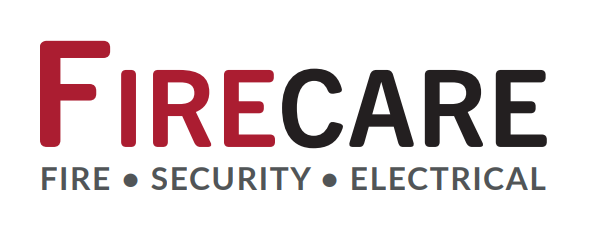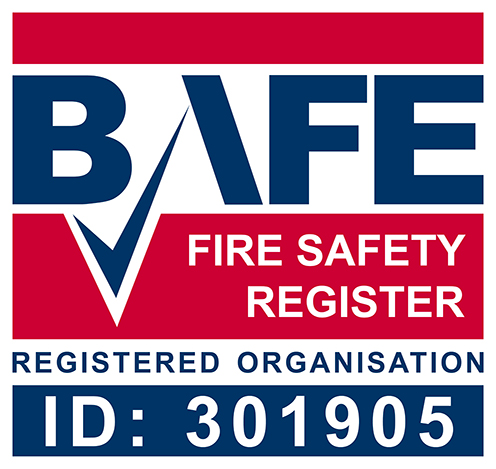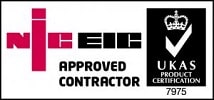Security Advice & Recommendations
Contrary to popular belief, the majority of burglaries are committed by opportunist thieves. They choose premises that have no obvious signs of security, or where they think they won’t be seen. If they have succeeded once, they can be motivated to try again.
It’s important that you review your security and act quickly if you need to upgrade it.
Many organisations do not respond quickly to a burglary. Often security will only be improved after the stolen property has already been replaced, so now’s a good time for you to determine the risk of crime to your premises. You should introduce some changes to prevent or reduce any further loss before you purchase new equipment.
All your staff should be encouraged to identify any security risks as it’s in everyone’s interest to ensure the security and success of your business.
General Security Advice
- Clearly define the boundary of your premises. This will help inform visitors that they’re entering private property. This can be achieved by using fences, walls, gates, landscaping and clear signs.
- Where possible, have one entrance/exit point to minimise the opportunity for unauthorised access. This should be indicated with clear signage.
- Ensure that all staff are briefed on the security procedures, particularly those who may be in the building outside normal working hours.
- Identify any features in your premises that could provide cover for intruders and remove or improve them. Examples include recessed doorways, concealed yards, landscaping and poorly lit areas.
- Ensure that access to the roof area is restricted, by removing vulnerable features such as low walls, low roofs or downpipes
Protect Your Business with FireCare Security & Electrical
Doors, Windows & Locks
There’s a wide range of doors, windows and locks that will provide your premises with additional security. Some things to think about include:
- The location of the doors/windows
- The location and value of the property
- The value or desirability of the goods or information within the premises
- The risks relating to the loss of, or interruption to the business
- The use of additional security technology, including CCTV, intruder detection equipment and asset marking systems.
For information on door, window and lock security, please visit www.securedbydesign.com for relevant standards and details of approved security companies.
During Working Hours
- Use simple security measures such as wearing identification badges whilst on the premises to help prevent unauthorised access.
- Visitors’ identification should be checked when they enter. Ensure they sign in and out and issue them with visitor badges.
- Brief all staff and encourage them to challenge people not wearing the correct identification badge.
- Escort visitors to and from their destination.
Outside Working Hours
- Always use security lighting inside and outside the building when not in use.
- Ensure that contract staff are supervised.
- Consider employing security personnel – particularly at times such as evenings, weekends or during holiday periods.
Preventing Theft
- Valuable items should be locked away in secure rooms or put into purpose-built containers when not in use.
- Rooms containing valuable equipment should be kept locked and alarmed when not in use.
- Security mark equipment with an ultra-violet marker or other commercial marking system to identify the owner and to deter thieves.
- Advise all employees to protect and secure their personal property whilst on the premises (use lockers etc) and advise employees not to bring valuable items to work.
- Keep any cash on the premises to a minimum and keep it secured.
Alarms
An intruder alarm can deter potential burglars, but it’s not a substitute for good locks, and if you’re considering one it’s important that you choose the right one. The Police receive thousands of calls every year and very few are genuine alarm activations.
There are many alarms available, from cheap systems which you can fit yourself, to more expensive and sophisticated systems, which need to be installed by professionals.
There are two types:
- Audible alarms – a bell or siren sounds but the Police will only respond if someone confirms suspicious activity or has seen someone breaking into your house.
- Monitored alarms – if the alarm is activated, a monitoring station can check why and notify the Police or a nominated keyholder.
For an alarm to be effective and legal it should:- Meet the appropriate British or European Standard set by your insurance company
- Be maintained regularly and inspected by a member of the National Security Inspectorate (NSI) or Security Systems and Alarm Inspection Board (SSAIB)
- Cut-off after 20 minutes
- Be professionally installed
Lighting
Unlit areas can provide hiding places for burglars, and good lighting can act as an excellent deterrent as it draws attention to them.
- Fit outside lights out of easy reach at a height of at least 2.5m (8 feet).
- Low-energy lights controlled by a dusk to dawn sensor or switch are the most appropriate and can cost less than 1p per night.
- Floodlights with a movement sensor are the most effective but can be annoying to neighbours so make sure they are directed downwards and within your own property.
Some sensors are separate to the light and can be positioned to cover vulnerable areas.
CCTV Systems
CCTV systems can be an effective and useful tool for crime prevention and can help the investigation of crime. Careful consideration must be given to placement and management of any CCTV system. For the system to be effective you should follow this advice:
- Clean the camera lens and recording equipment regularly.
- Store all recording equipment and recorded material in a locked cabinet. This is to ensure that a thief cannot remove evidence whilst committing an offence.
- If using tapes, have one tape clearly identified for use every day of the month. Use a tape 12 times a year only.
- Store a recorded tape or digital image for 31 days before recording over it.
- Tapes must be changed regularly to ensure you’re recording a clear image.
- Replace tapes annually.
- Ensure that time and date settings are correct. This will avoid confusion about when the incident occurred. It also removes the opportunity for the defendant to challenge the evidence of recordings in court.
- Display signs to warn the public that they are being recorded.
- Face a camera towards the doorway so you get a clear head and shoulders image of everybody entering and leaving the premises.
- To avoid recording a silhouette image when cameras are pointing at doorways, you should have a backlight to limit the effects of the sun shining through the doors.
Any CCTV system must be registered with the Information Commissioner to comply with the Data Protection Act. In order for the CCTV system to be legal there must be clear signage stating:
- The name of the operator
- The purpose of the system e.g., crime prevention
- A contact telephone number.
For further information on the legal requirements for using CCTV, contact the Information Commissioner on 01625 545700 or go to www.ico.org.uk
Security marking improves the chances of recovering your property if you’re unfortunate enough to suffer a loss. It can also assist in any investigation and provide valuable evidence, which may lead to a successful prosecution.
Always mark items in a prominent position to deter potential thieves. Check the security markings of the relevant items at least once every 12 months. Various methods of security marking are available, and these include:
- Labels, plates and stickers
- Post coding
- Engraving and chemical etching
- Barcodes
- Chemical trace
- Tracking devices
- Identification tags
- Micro-marking
- Registration databases
- Serial number and warranty databases
- Photographic databases.
If you use one of these methods, you should ensure that it identifies that the item belongs to you. Every item should have a secure and visible mark that will help to return it to you. If you require any further security advice, then please contact us.
Contact Our Friendly Team Today
At FireCare, we have a vast amount of experience helping businesses across the South Coast with their fire safety, security and electrical needs. Our professional team are here to suggest practical, pragmatic steps to help you improve your compliance and better protect your people, premises and property.
Get in touch with us today by completing our contact form, and a member of our team will be in touch.
"We have used FireCare Security and Electrical since we moved into our new office 2 years ago. Initially, the reason I used their services was their excellent customer service. There is always someone who is willing to help at the end of the phone and they always phone back promptly when they say they will"
- Victoria Sedgley, Net Serve


